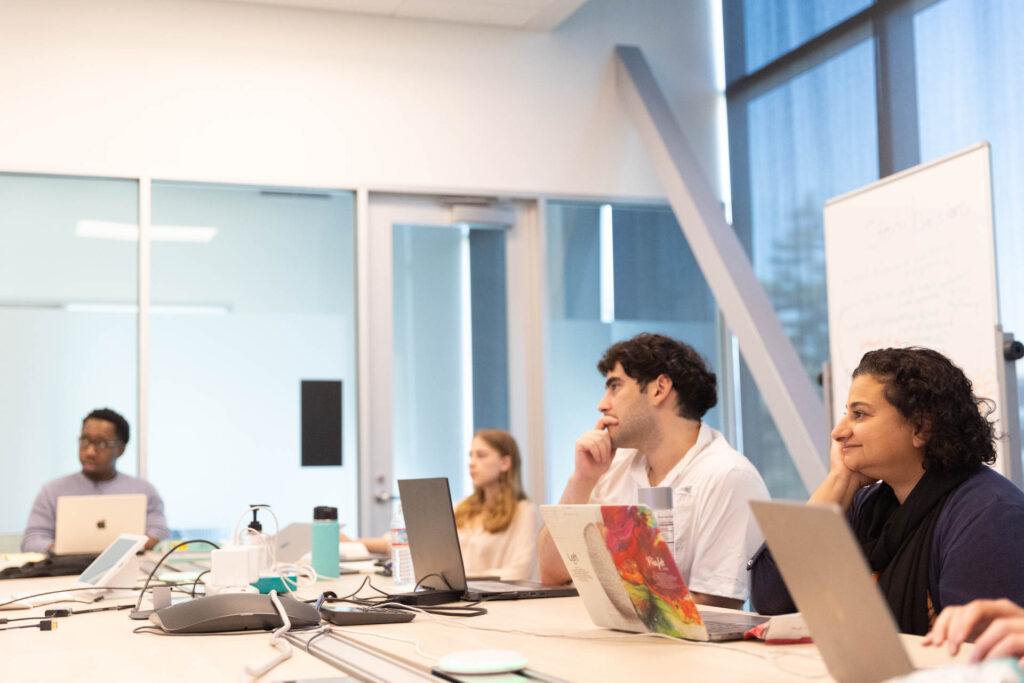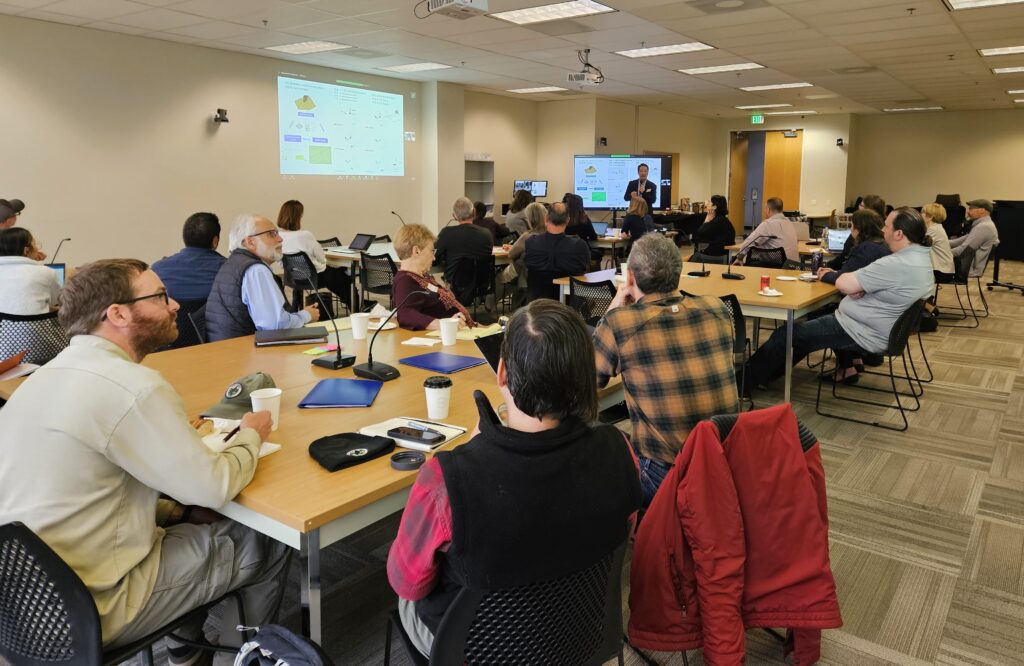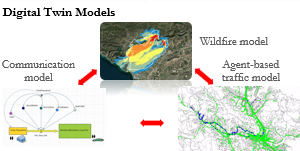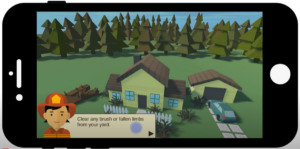Designing Smart, Sustainable Risk Reduction in Hazard-Prone Communities: Modeling Risk Across Scales of Time and Space
Vision
Creating communities that are more resilient to wildfires by harnessing the collective knowledge and action of community members, emergency personnel, civic leaders, and researchers.
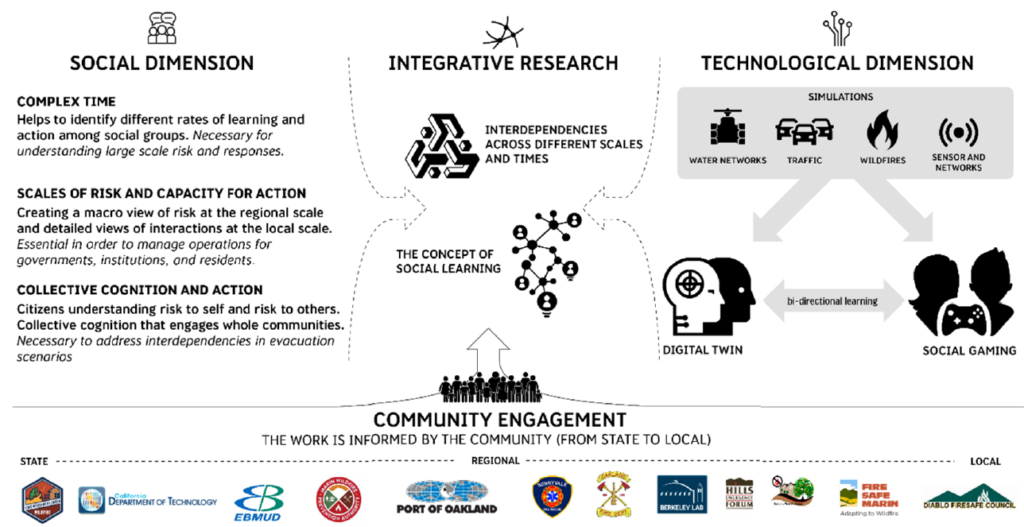
The Major Goals of the Project
The purpose of this project is to develop new methods for managing risk in communities exposed to recurring natural hazards, such as wildfires. The project will use a complex systems approach to hazard reduction across multiple scales of risk. It will develop a new generation of socio-technical digital twin that integrates models of physical infrastructure systems and virtual networks of communication with social games. The project will use serious games to activate learning processes inherent in play to engage the community’s awareness and commitment to collective action.
Specifically, the project aims to:
- Develop a new sociotechnical digital twin of the San Francisco Bay Area that integrates virtual models of physical infrastructure systems, social/commercial networks, and insurance mechanisms.
- Design and develop serious games that can be used to activate learning processes and engage the community’s awareness and commitment to collective action.
- Investigate whether community learning processes that focus on cognition and action will mitigate wildfire risk in the short-term and lead to sustainable adaptation to recurring risk conditions in the long-term.
- Engage under-represented minorities in affected regions and support decision-makers in vulnerable communities.
The project is expected to make significant contributions to the field of risk management by:
- Developing new methods for managing risk in hazard-exposed communities.
- Advancing risk management theory through a prototype sociotechnical framework for decision-making support.
- Providing both regional and micro-scale views of risk interactions.
- Translating risk information into easily understandable formats and embedding learning processes in gaming scenarios to promote risk reduction.
Learn more on this project here
Sponsored by
 This project is in response to the National Science Foundation (NSF) – Smart & Connected Communities (SCC) program. It is co-funded by the Advancing Informal STEM Learning program which seeks to advance new approaches to, and evidence-based understanding of, the design and development of STEM learning in informal environments.
This project is in response to the National Science Foundation (NSF) – Smart & Connected Communities (SCC) program. It is co-funded by the Advancing Informal STEM Learning program which seeks to advance new approaches to, and evidence-based understanding of, the design and development of STEM learning in informal environments.
We appreciate your comments and suggestions. If you have any, please send an email to us.
